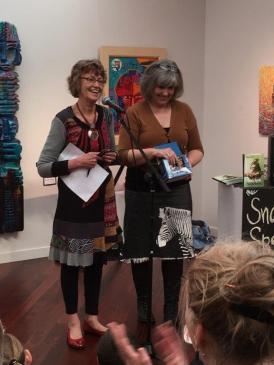Is it Fiction?
I was confronted with an extract from my second novel recently. The husband of an old friend who recently died, had just read my novel. He noticed a cameo appearance by his wife. We were out to dinner and he presented me with the extract, photocopied onto a plain piece of paper. Alone it stood, a piece of fiction, and he had a quibble with but one word. I’d used the word ‘hefty’. She wasn’t hefty, he said with a touch of regret or perhaps chastisement. He looked across at someone else at the table who knew my friend better than me, almost as well as he. She wasn’t hefty, was she, he asked again? No, she wasn’t hefty, and for a moment I had to interrogate myself as a friend, and then as a writer.
What had I done? I’d written about a femme fatale, a woman who fitted physically (apart from hefty) the deceased wife. I’d also used her Baltic State ethnic origin, so that if you knew her, which most of my readers would not have, you would have known who it was. The thing is, I was using my friend to disguise a completely different woman, who once again none of my readers would have known. Indeed, a woman I barely knew myself, but not wishing to use a ‘real’ person, I’d stolen the character and looks (apart from hefty), of an old friend… not ever thinking I’d be held to account.
And there it was, more than ten years after my novel was published, the paragraph or two (a cameo character only), was placed before me, not accusingly as you might think, but with great delight and recognition. But I was being held to account. She wasn’t hefty.
How to clarify that I was using my friend, to disguise a woman I hardly knew, to create a fictional character? Better still, my cameo character’s name seemed far from the name of either my friend or the woman I hardly knew. But that didn’t matter. Her bereaved husband, decided, that the name was close to the spelling of his wife’s name backwards. And I looked, and wondered, and perhaps it was… maybe inadvertently I’d done this, without realising. But my memory tells me that I simply googled the Baltic State country my friend had originated from and looked at possible names… attempting to disassociate the actual from the fictional.
The good news is that I haven’t offended anyone, as my friend’s husband loves this description of his wife. The scenario in which she appears is entirely fictional I say. But I realise this isn’t entirely true. It is an event that I have recreated, fictionalised, and reimagined, giving it more weight and intrigue than there ever was in the actual. But the truth is, his wife wasn’t part of this event. Why this event stayed in my mind from the 1970’s until the new millennium and emerged as a fictional truth, I’ve no idea. But it has reminded me of my first novel, when a neighbour told another friend after reading my novel ‘well, that never happened’… the thing that never happened, was me the author having an illicit sexual encounter with the neighbour… It seemed hilarious at the time, that the neighbour assumed my protagonist was indeed, myself, the author and another character was… goodness me… himself. But too, I know an old school friend wrote to my publisher after my first novel came out to say he knew me and many of the characters (oh goodness me) in my novel. Err… what to say.
After the publication of my third novel ‘Daughters of Messene’, I was stopped in the street by a neighbour who told me ‘I’ve just read your book.’ It was said in an ambiguous tone that implied ‘can you believe it, both that I’ve read your book and that you’ve written one’. And then the best part. ‘I couldn’t find you anywhere in the novel… you really are a good writer.’
I’ll take the compliment and be glad that he hadn’t found his wife, or himself…



